第62章
But the springs would dry up of themselves; the provisions would be exhausted, and the catapults worn out; the Mercenaries, who were ten times as numerous, would triumph in the end.The Suffet devised negotiations so as to gain time, and one morning the Barbarians found a sheep's skin covered with writing within their lines.He justified himself for his victory: the Ancients had forced him into the war, and to show them that he was keeping his word, he offered them the pillaging of Utica or Hippo-Zarytus at their choice; in conclusion, Hamilcar declared that he did not fear them because he had won over some traitors, and thanks to them would easily manage the rest.
The Barbarians were disturbed: this proposal of immediate booty made them consider; they were apprehensive of treachery, not suspecting a snare in the Suffet's boasting, and they began to look upon one another with mistrust.Words and steps were watched; terrors awaked them in the night.Many forsook their companions and chose their army as fancy dictated, and the Gauls with Autaritus went and joined themselves with the men of Cisalpine Gaul, whose language they understood.
The four chiefs met together every evening in Matho's tent, and squatting round a shield, attentively moved backwards and forwards the little wooden figures invented by Pyrrhus for the representation of manoeuvres.Spendius would demonstrate Hamilcar's resources, and with oaths by all the gods entreat that the opportunity should not be wasted.Matho would walk about angry and gesticulating.The war against Carthage was his own personal affair; he was indignant that the others should interfere in it without being willing to obey him.
Autaritus would divine his speech from his countenance and applaud.
Narr' Havas would elevate his chin to mark his disdain; there was not a measure he did not consider fatal; and he had ceased to smile.Sighs would escape him as though he were thrusting back sorrow for an impossible dream, despair for an abortive enterprise.
While the Barbarians deliberated in uncertainty, the Suffet increased his defences: he had a second trench dug within the palisades, a second wall raised, and wooden towers constructed at the corners; and his slaves went as far as the middle of the outposts to drive caltrops into the ground.But the elephants, whose allowances were lessened, struggled in their shackles.To economise the grass he ordered the Clinabarians to kill the least strong among the stallions.A few refused to do so, and he had them decapitated.The horses were eaten.
The recollection of this fresh meat was a source of great sadness to them in the days that followed.
From the bottom of the ampitheatre in which they were confined they could see the four bustling camps of the Barbarians all around them on the heights.Women moved about with leathern bottles on their heads, goats strayed bleating beneath the piles of pikes; sentries were being relieved, and eating was going on around tripods.In fact, the tribes furnished them abundantly with provisions, and they did not themselves suspect how much their inaction alarmed the Punic army.
On the second day the Carthaginians had remarked a troop of three hundred men apart from the rest in the camp of the nomads.These were the rich who had been kept prisoners since the beginning of the war.
Some Libyans ranged them along the edge of the trench, took their station behind them, and hurled javelins, making themselves a rampart of their bodies.The wretched creatures could scarcely be recognised, so completely were their faces covered with vermin and filth.Their hair had been plucked out in places, leaving bare the ulcers on their heads, and they were so lean and hideous that they were like mummies in tattered shrouds.A few trembled and sobbed with a stupid look; the rest cried out to their friends to fire upon the Barbarians.There was one who remained quite motionless with face cast down, and without speaking; his long white beard fell to his chain-covered hands; and the Carthaginians, feeling as it were the downfall of the Republic in the bottom of their hearts, recognised Gisco.Although the place was a dangerous one they pressed forward to see him.On his head had been placed a grotesque tiara of hippopotamus leather incrusted with pebbles.It was Autaritus's idea; but it was displeasing to Matho.
Hamilcar in exasperation, and resolved to cut his way through in one way or another, had the palisades opened; and the Carthaginians went at a furious rate half way up the hill or three hundred paces.Such a flood of Barbarians descended upon them that they were driven back to their lines.One of the guards of the Legion who had remained outside was stumbling among the stones.Zarxas ran up to him, knocked him down, and plunged a dagger into his throat; he drew it out, threw himself upon the wound--and gluing his lips to it with mutterings of joy, and startings which shook him to the heels, pumped up the blood by breastfuls; then he quietly sat down upon the corpse, raised his face with his neck thrown back the better to breathe in the air, like a hind that has just drunk at a mountain stream, and in a shrill voice began to sing a Balearic song, a vague melody full of prolonged modulations, with interruptions and alternations like echoes answering one another in the mountains; he called upon his dead brothers and invited them to a feast;--then he let his hands fall between his legs, slowly bent his head, and wept.This atrocious occurrence horrified the Barbarians, especially the Greeks.
From that time forth the Carthaginians did not attempt to make any sally; and they had no thought of surrender, certain as they were that they would perish in tortures.